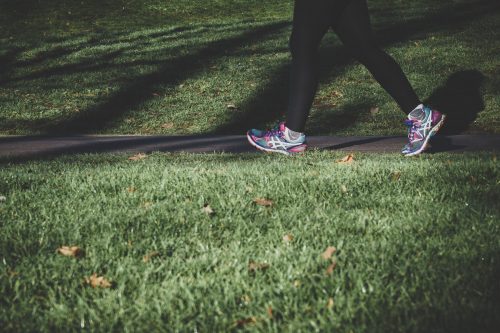People deal with stress in different ways. But as nurses, you probably feel more stress and heightened anxiety because of your work and worrying about your friends and family.
What you’re going through is normal. However, as you already know, chronic stress won’t do anything good for your health. To help ease your anxiety and worries, take a few minutes to regain your focus and just chill.
We’ve rounded up 20 ways to relieve stress and feel more relaxed without burning holes in your wallet.
1. Treat yourself to coffee

Head to your break room and get a cup of coffee. Its aroma can help make you feel better in an instant. Plus, it has caffeine!
2. Sniff a citrus scent
The smell of sweet orange may help improve your mood and decrease symptoms of anxiety. If you can’t find a real fruit, citrus essential oils will do.
3. Meditate
You don’t really need to enroll in a class or set up a special place just to meditate. You can find a quiet spot at home where you can sit or lie comfortably. Close your eyes and take deep breaths for a moment.
If you have so many thoughts going through your head, it can help if you can focus on a single object. Repeating your favorite mantra may help, too!
4. Take deep breaths
If you can’t find a quiet spot to relax or you’re just not into meditation, you can just do the breathing part. From the diaphragm, take a few deep breaths to reduce stress and anxiety. Research suggests that breathing deeply may help lower cortisol levels.
5. Listen to music

This is one of the easiest and cheapest ways to reduce stress. Music has the ability to lower the levels of cortisol in the body, easing stress and anxiety.
Now, what should you listen to?
Classical and jazz music have calming effects. But hey, you can choose whatever tune you find relaxing.
6. Read a book
The real world may sometimes feel too much to handle. If you feel that way, try to get a book. Find a story that takes you to an epic fantasy or makes your mind wander with thrilling narratives. Reading a book can take your mind off your problems and worries.
7. Just laugh
Laughter can help reduce the physical effects of stress on your body such as fatigue. However, this one will only work if your laughter is genuine.
You can force yourself to laugh but it won’t have the same effect. So go ahead and find a really funny movie and laugh it off!
8. Write your worries away
Keeping a journal has reflective and meditative effects. It can help ease stress-related symptoms.
And if you start a gratitude journal, it can help you put things in proper perspective. You can write down the things that make you happy each day.
9. Try art therapy
Starting a creative outlet can do wonders for your mind. You can try oil painting or even modern dance. Art therapy is a huge help in stress management.
10. Take a walk

A quick walk to your favorite coffee shop or around your neighborhood is good for your mind and body. The change in scenery can help a lot in relieving stress.
When going for a stroll, walk at a pace that feels comfortable and natural for you. There’s no need to rush.
11. Be active
Exercise provides natural stress relief by increasing the chemicals in your body that make you feel good.
You don’t have to force yourself into committing to intense exercise programs. Any type of cardio can get your feel-good chemicals pumpings.
12. Chew gum
Believe it or not, chewing gum is associated with stress reduction. Research suggests that it can inhibit the propagation of stress-related information in the human brain.
13. Make tea
Drinking a cup of green tea can help you sleep better and feel less stressed. If you aren’t a fan of green tea, try chamomile and mint teas.
14. Use visualization
Guided imagery involves envisioning a scene that’s calm and peaceful for you.
Try this:
Carefully close your eyes and picture yourself hanging out on a beach. Think about the way the palm trees sway in the breeze. Hear the waves calmly lapping on the shore.
In a minute or two, you should feel calmer. If you can’t get into a scene by yourself, you can try downloading apps. You can find a lot of them online.
15. Stretch those muscles

Stretching doesn’t always mean enduring a 90-minute yoga session. You can actually do it whenever and wherever you are. You can even stretch your muscles while at work.
16. Make an Epsom salt bath
Being on your feet all day, a warm bath sounds like a reward for nurses.
To make it more relaxing, try adding Epsom salts. And while you’re at it, light a few scented candles and get a glass of wine or your favorite cup of tea.
17. Get a weighted blanket
Weighted blankets create a grounding effect on the body. They also stimulate DPRT or deep pressure touch. These two effects help reduce high levels of anxiety and chronic stress.
Take note that weighted blankets aren’t for everyone. If you have circulation issues, chronic health conditions, or temperature regulation problems, it’s best not to give this tip a try.
However, if you’re clear and your health is good, look for weighted blankets that are made from natural fiber. Get one that’s 5% to 10% of your body weight.
A Word of Caution
Although these tips work well in reducing stress, they aren’t meant to treat or resolve serious anxiety and stress disorders. They should be discussed with your therapist or physician.



















